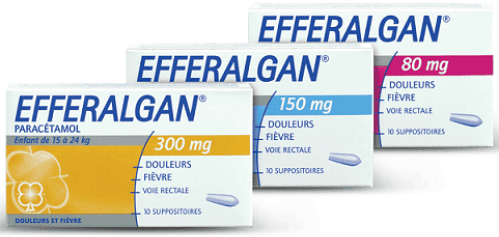This is an automatically translated article.
Ultracet contains the active ingredient paracetamol combined with tramadol. It is indicated in the treatment of moderate to severe pain. Let's learn about dosage and notes when using Ultracet through the article below.
1. Uses of the drug Ultracet tab
"What disease does Ultracet treat?". Ultracet contains the active ingredient tramadol hydrochloride 37.5mg combined with paracetamol 325mg. Drugs containing central analgesics should be indicated in the treatment of moderate to severe pain, when other alternative treatments have not been effective.
2. Dosage of the drug Ultracet tab
"What does Ultracet do and how is it used?". Ultracet tablets have the following recommended dosages:
Adults and children over 16 years old:
Ultracet should be indicated in patients with moderate to severe pain who need a combination of tramadol and paracetamol. The dose of the drug is adjusted depending on the pain level and the patient's ability to respond; The maximum dose of Ultracet is 1-2 tablets every 4-6 hours, the maximum dose is 8 tablets/day; The drug can be taken with or without food; In case of needing long-term treatment with Ultracet, the patient should be regularly monitored and assessed for the risk of whether to continue treatment or not. Children under 16 years of age: There are no studies demonstrating the efficacy and safety of treatment with Ultracet in children under 16 years of age.
Elderly: There were no differences in safety or pharmacokinetic properties in the elderly (65 years and older). Therefore, for patients under 75 years of age with normal liver and kidney function, no dose adjustment is required. For patients over 75 years old, the process of drug elimination may be prolonged, in some cases it is necessary to adjust the dose.
Patients with renal impairment: It is recommended to increase the dosing interval of Ultracet in patients with creatinine clearance less than 30 ml/min (dosage should not exceed 2 tablets every 12 hours).
Patients with liver failure: Do not use Ultracet in patients with severe liver failure. For patients with moderate and mild hepatic impairment, consideration should be given to prolonging the duration of the drug.
3. Undesirable effects when using Ultracet tab
Ultracet drug can cause some side effects as follows:
Body as a whole: Fatigue, hot flashes, body weakness; Peripheral nervous system and central nervous system: Tremor, headache; Digestive system: Constipation, diarrhea, abdominal pain, dry mouth, flatulence, vomiting; Psychiatric disorders: Anxiety, anorexia, insomnia, elation, restlessness; Skin and skin appendages: Increased sweating, itching, rash; Cardiovascular disorders: Exacerbation of hypertension; Cardiac Arrhythmia: Palpitations, arrhythmia, tachycardia; Hepatobiliary system: Abnormal liver tests; Vision disorders: Changes in vision.
4. Note when using the drug Ultracet tab
4.1. Contraindications The use of Ultracet tab is contraindicated in the following cases:
Patients with hypersensitivity to tramadol, paracetamol or any component of Ultracet; Patients with hypersensitivity to drugs of the opioid class; Patients with acute poisoning due to alcohol, drugs, sleeping pills, central analgesics or psychotropic drugs; The patient is being treated with a monoamine oxidase inhibitor or has stopped using it within the previous 2 weeks; Patients with severe liver failure, epilepsy not controlled by treatment. 4.2. Convulsions: An increased risk of convulsions has been reported following treatment with tramadol. The risk of convulsions is increased with higher than recommended doses of tramadol or when used concurrently with the following drugs: Tricyclic antidepressants (cyclobenzaprine, promethazine), selective serotonin reuptake inhibitors (drugs) appetite suppressants (SSRIs, antidepressants), opioids, MAO inhibitors, tranquilizers... The risk of convulsions is also increased in people with a history of convulsions, epileptic patients. Anaphylactoid Reactions: Patients with a history of anaphylactic reactions to codeine, an opioid drug may increase the risk of an anaphylactic reaction. Respiratory depression: Caution should be exercised when treating with Ultracet tab in patients at risk of respiratory failure. Taking high doses of tramadol with anesthetics, anesthetics, or alcohol can lead to respiratory depression. Concomitant use with CNS depressants: Use caution and reduce the dose of Ultracet in patients being treated with CNS depressants such as opioids, alcohol, anesthetics, phenothiazines, tranquilizers or drugs. sleep. Increased intracranial pressure, head trauma: Use Ultracet with caution in patients with head trauma or increased intracranial pressure. Patients with opioid addiction: Do not use Ultracet in patients with opioid addiction. The Tramadol component in the drug caused relapse in some patients who were previously addicted to opioids. Use with alcohol: Patients with severe chronic alcoholism increase the risk of liver toxicity when taking paracetamol overdose. Withdrawal: Symptoms may occur when a person stops taking Ultracet suddenly. Withdrawal symptoms such as excessive anxiety, panic, hallucinations, tinnitus, paresthesia... Patients with renal failure: For patients with serum creatinine clearance less than 30ml/min, it is recommended to increase The interval between doses of Ultracet tab should not exceed a dose of 2 tablets every 12 hours. Patients with hepatic impairment: It is not recommended to use the drug in patients with severe hepatic impairment. Skin reactions: Stevens - Johnson syndrome, acute generalized exanthematous pustulosis syndrome, toxic skin necrosis syndrome due to drug use can occur, but the rate is very low. Therefore, patients need to stop using the drug as soon as symptoms of skin reactions appear. Risk of hyponatremia: More common in patients with pre-existing risk factors such as elderly patients, patients being treated concomitantly with drugs that cause hyponatremia. Tolerance and physical and mental dependence may occur even at therapeutic doses. Therefore, the clinical need for narcotic analgesics should be regularly reviewed. Do not exceed the recommended dose of the drug, do not use it together with drugs containing tramadol, paracetamol. Pregnant women: Ultracet crosses the placental barrier and harms the unborn baby. Therefore, the use of Ultracet is contraindicated in pregnant women. Lactation: The drug is not recommended in the treatment of women who are breast-feeding, as safety and efficacy have not been studied in the neonate.
5. Drug interactions
Ultracet may interact with the following drugs:
CYP2D6 inhibitors: fluoxetine, quinidine, bupropion, paroxetine...; CYP3A4 inhibitors: antifungal drugs, macrolide antibiotics; CYP3A4 inhibitors: Carbamazepine, rifampicin, phenytoin; Central analgesics: Codeine, morphine; Seretonin Inhibitors: Antidepressants; MAO inhibitors: Tranylcypromine, phenelzine, linezolid; Muscle relaxants: Causes respiratory depression and neuromuscular depression; Diuretics: Reduces the effect of diuretics; Digoxin, warfarin; Drugs that lower the seizure threshold such as bupropion, serotonin reuptake inhibitors, neuroleptics, and tricyclic antidepressants; Opioid agonist antagonists (nalbuphin, buprenorphine, pentazocin): Reduce the pain effect of Ultracet by competitive blocking of receptors. Ultracet contains the active ingredient paracetamol combined with tramadol. It is indicated in the treatment of moderate to severe pain. To ensure the effectiveness of treatment and avoid unwanted side effects, patients need to strictly follow the instructions of the doctor, professional pharmacist.
Follow Vinmec International General Hospital website to get more health, nutrition and beauty information to protect the health of yourself and your loved ones in your family.
Please dial HOTLINE for more information or register for an appointment HERE. Download MyVinmec app to make appointments faster and to manage your bookings easily.













